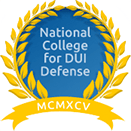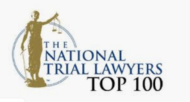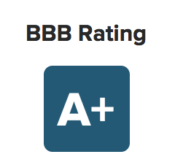
Disorderly persons and petty disorderly persons offenses are the most common variety of non-motor vehicle charge prosecuted in Municipal Court in NJ. If you have been charged with a disorderly persons offense, the most important thing you need to know is that a record of a resulting conviction will show on a criminal background check. It is therefore extremely important that you retain an experienced NJ defense attorney to insure that your complaint is downgraded to a municipal ordinance or dismissed altogether. Our defense team possesses over 60 years of experience defending almost every type of disorderly persons charge in New Jersey and even includes two former Municipal Prosecutors. Our lawyers are familiar with how these cases need to be handled, having prosecuted these cases in over 20 NJ municipalities and defended thousands of disorderly and petty disorderly charges. Make sure your complaint and/or arrest does not result in your being convicted, and contact a lawyer from our firm, the Law Offices of Jonathan F. Marshall, for a complementary initial consultation anytime 24/7 at 855-450-8310.
The most frequently encountered disorderly persons offenses in municipal court are:
Penalties if Convicted of these Charges
The penalties under New Jersey law for individuals convicted of a petty disorderly persons offense or regular disorderly persons offense include a jail sentence of up to six (6) months. The Court may also impose a monetary fine of up to $1,000. Any conviction also carries mandatory assessments of $50 for the Victims of Crime Compensation Board (VCCB), $75 for the Safe Neighborhood Services Fund, and $33 in court costs. For additional detail concerning penalties, consult our page titled Disorderly Persons Offense Fines & Penalties.
Difference Between a “Crime” and “Disorderly Persons” Charge. The New Jersey code refers to violations of law in terms of “crime” or “offense.” Whenever the code uses the term offense, it is referring to a disorderly persons or petty disorderly persons charge. By contrast, a crime is an offense that is customarily defined as a felony in other states and involves exposure to six (6) months or more in possible incarceration in jail. An individual is entitled to have allegations of a crime presented to a grand jury, hence NJ’s reference to these offenses as indictable. An individual arrested for a disorderly persons offense has no right to a grand jury as these are non-indictable charges punishable by a maximum period of imprisonment of six (6) months.
- Statute of Limitation for Filing Disorderly Persons Cases. The statute of limitation for prosecution of disorderly persons offenses like simple assault, harassment, bad checks or the like is one (1) year. What this means is that a complaint alleging, for example, resisting arrest, possession of less than 50 grams of marijuana, obstruction or drug paraphernalia, must be filed with the Court within a year of commission of the related offense or the complaint is barred from prosecution by virtue of it being out-of-time under New Jersey law.
- Expungement of Disorderly Person Convictions. A person who has been convicted of a disorderly or petty disorderly persons offense may seek expungement five (5) years following conviction or completion of probation and payment of fines, whichever is later. Eligibility to have a petty or disorderly persons offense expunged is limited to individuals with no more than three (3) convictions of this nature and persons who have never been convicted of a “crime.”
- Diversion Programs for these Offenses. A program referred to as Conditional Discharge allows individuals charged with Possession of Less than 50 Grams of Marijuana and Drug Paraphernalia to avoid conviction provided they meet certain requirements and successfully complete approximately one (1) year of probation. Pretrial Intervention is presently unavailable in municipal court as a means of diverting and/or avoiding conviction for disorderly persons offenses.
If you would like more information about disorderly persons charges, one of our attorneys would be happy to assist you. Our lawyers are always eager to assist individuals in need of our criminal legal assistance and initial consultations are always free of charge. Don’t make a decision in the dark if you have been charged with a disorderly persons complaint in Monmouth County, Union County, Middlesex County, Ocean County, Hudson County, Essex County, Morris County, Mercer County or elsewhere in NJ. The assistance you need from a knowledgeable attorney is just a telephone call away at 855-450-8310.











